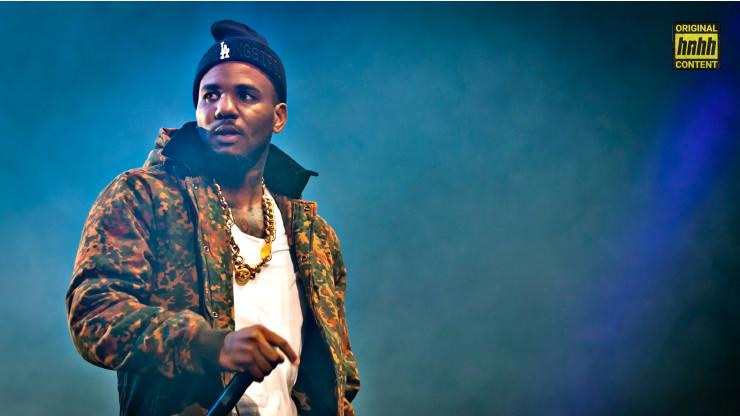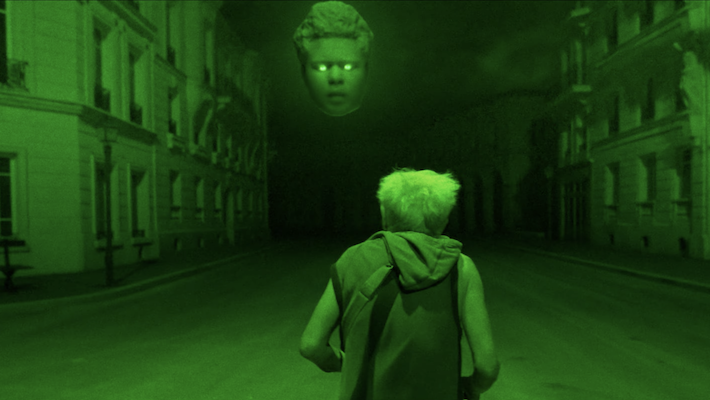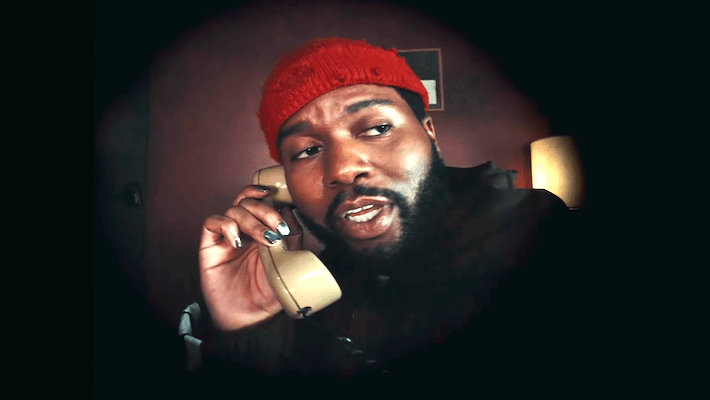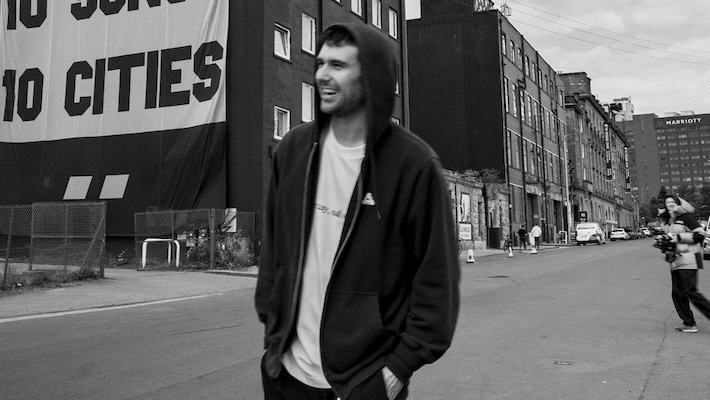A decade and a half since its release, we celebrate an album that made Compton’s own The Game into a west coast icon.
An album is more than the sum of its parts. Although it may begin as an assortment of tracks, what makes an album into something beyond one self-contained artistic statement is when it supersedes its runtime to set a new genre-wide precedent. Released 15 years ago this week, what The Game’s major-label debut The Documentary represents is the moment a gravelly-voiced 26-year-old arose from the ashes of a flailing west coast and transformed into its leading light for a new generation.
Growing up in the Crip-governed “Santana Blocc” district of Compton, Cedar Block Piru Jayceon Taylor never had it easy. Entrenched in the treacherous gang-bangin’ lifestyle that countless LA-based artists had chronicled in excruciating detail, his time in the drug trade would come to an abrupt end when he was shot five times in 2001 at his own “dope spot.” An ambush that’d leave him in a coma for three days, Taylor awoke with a newfound drive to evade a lifestyle that claimed so many of his nearest and dearest.
Although he’d scarcely picked up the pen before this epiphany, Game—who allegedly got the moniker from his grandmother’s love of the Michael Douglas film of the same name— soon had industry tastemakers in hot pursuit. Initially aligned , the rapper otherwise identifiable as “Chuck Taylor” would soon heed the call of his musical ancestor, Compton’s own Dr Dre. Armed with a hardened demeanour and mythos that mirrored that of Dre and Eminem’s other student , it was Aftermath A&R Mike Lynn that first caught wind of this unpolished gem and pledged to mould him into the finished product. “When I saw Game, I saw a star,” he told Complex. “Game was always an incredible MC, but we had to turn him into a song maker— show him how to write songs that are bigger than your block.”

Don Arnold/WireImage/Getty Images
Talented enough to transition from “drug dealer to protégé of in five months,” early reports suggested that Jayceon Taylor had not only been handed the Compton baton, but the unenble task of shepherding the entire west coast out of the doldrums. As outlined in a November 2004 interview with The Guardian, Game spoke of the sterling example that he had to follow: “They were everything we knew around here. We didn’t even know our A-B-C but we knew N-W-A. Eazy-E was like Robin Hood, taking from the rich and giving to the poor.”
Signing under Dre’s umbrella in 2003, the road to The Documentary wasn’t a case of putting him in the booth and letting magic manifest itself. After delivering a year’s worth of tracks that weren’t seen as anything other than mixtape fodder, the turning point would come in the shape of a now-iconic, Kanye West-helmed offering. “The version of the album that came out in stores; the only song that was on that album that existed when Game said he was ready to put an album out was ‘Dreams,'” recalled Lynn. “Every song [on The Documentary was recorded] after ‘Dreams.'”
All curated under the watchful eye of Dr. Dre, the album— which Game initially aimed to release under the “N***a Wit An Attitude Volume 1” title that’s referenced on “Dreams”— bristled with a boisterous swagger that’d set the world alight. Aside from the sonic sorcery of Dre himself, underpublicized driving forces behind the record such as A&R Angelo Sanders and Records’ Sha Money XL assembled a murderer’s row of producers to help craft the record’s sound. Bolstered by illustrious names as Scott Storch, , Cool & Dre, Buckwild, Just Blaze and ’s , what made The Documentary so immediately gripping is that rather than resting on the laurels of the west coast’s pedigreed sound, Game’s debut surveyed the genre in its entirety and took choice cuts from every region.

Mark Venema/WireImage/Getty Images
Filled with menacing provocations to would-be enemies and the patented name-dropping style that he’s now synonymous with, the slain and scarred soldiers of LA’s territorial war hovered over The Documentary. Across 18 tracks, Game memorializes brothers-in-arms such as Tear, his “homeboy Charles,” Rob that “got killed for his Barkley’s” & even the Williams’ late half-sister Yutende Price before delivering his own assurance that he’s “willin to do two life sentences back to back” if tested on “Where I’m From.” On the record’s harpsichord-tinged title track, he attested to both his credentials as a reputed student of the craft and potential for greatness on one reference-loaded chorus, spitting:
“I’m Ready To Die without a Reasonable Doubt
Smoke Chronic and hit it Doggystyle before I go out
Until they sign my Death Certificate, All Eyez On Me
I’m still at it, Illmatic, and that’s The Documentary”
Marked by The Game himself as “the realest shit I ever wrote,” “Start From Scratch” is a heartfelt confessional that sees the tough persona melt away; in its place, an audibly inebriated Jayceon Taylor that’s grappling with demons and the ghosts of the past. However, where these tracks would endear him to the hip-hop faithful, the record’s debut at number one and first week sales figures of 587,000 wouldn’t have been possible without a slew of smash singles. And it’s in this area that 50 Cent’s presence and melodic expertise proved indispensable.

Peter Kramer/Getty Images
In an interview that rehashed the road to his 2005 sophomore project, The Massacre, 50 discussed how he came to play an integral role on iconic tracks such as “Westside Story,” “How We Do” and the celebratory, rags-to-riches anthem that is “Hate It Or Love It.” “They wanted to see if I would work with this other artist that Dre was working with,” Fif told XXL. They said, ‘The kid can rap, but he’s not a great songwriter. When Jimmy [Iovine] called for me to do it, I was like, ‘Alright, cool, I’ll fix it. I only worked with him for about four days… [Dre] was in love with “How We Do” and I was like, “Yo, I’ll give him that if you put it out right now.” And we just put it out… Sold about five million records for Game’s album [The Documentary] and then I came back.”
On the other side of the coin, Game has always been eager to downplay 50’s role in the project’s big hits, claiming that “Wasn’t none of them shits 50’s records. 50 came in after all of the records were already damn near done and he put his 50 Cent on them. I wasn’t [a part of G-Unit yet].” Slyly signified by 50 sitting in the backseat of the lowrider during the “Hate It Or Love It” video, the uneasy truce between the two and the volatile beef that would follow makes the album’s numerous references to his allegiance to G-Unit—“my unit is gorilla, fuck with my la familia, I will kill ya”– all the more jarring in hindsight. Conversely, Game was far more complimentary about working with 50’s mentor Eminem on the sinister Shady-produced “We Ain’t.” On top of quipping that “Em just killed me on my own shit,” the Compton artist recalled witnessing Shady’s writing process first-hand to Complex: “He goes off in the corner and starts spitting like he’s in a cypher. If you look at him, you’d think there’s five other dudes spitting with him like he’s in a real cypher, but it’s just him.”

Jason LaVeris/FilmMagic/Getty Images
Ending the year with Soundscan sales of 2,275,646, The Documentary became the tenth highest-selling album of 2005, landing directly below Kanye’s sophomore effort Late Registration. But above numbers, this opening statement scorched the earth to such an extent that the Compton rapper was instantly counted among 00’s hip-hop’s ruling class. Game’s coronation was so rapid that no-one questioned his role as a spokesperson for the red side of the crip-blood conflict during Snoop’s “Protect The West” summit that took place only 3 months after the album hit shelves. “We need some education out here with the artists that are touring and flying around the world like Snoop and Game are,” proclaimed Pomona’s pimp-rap forerunner Suga Free, all but formally crowning Game as the coast’s new torchbearer.
Cast out from Dre’s label amid the , Aftermath served as the incubator that allowed The Game to hone the skills he’d need to become a West Coast stalwart. But no matter how much bad blood was spilled between him and 50, Game has remained eternally grateful to his former mentor, frequently reflecting on the effect that his spell under Dre’s tutelage had on the coast. “That dude really gave me an opportunity to be something,” he informed Jonathan Mannion. “What he did for me is major. It really helped mould me. It really helped the legacy from my city going. It helped YG and Kendrick to get on.” Now, with his career allegedly at its end, The Documentary deserves its distinction as a classic that not only holds up on its own merits, but gave the Compton MC enough of an initial burst of momentum to stay at hip-hop’s forefront for 14 thrilling years.



